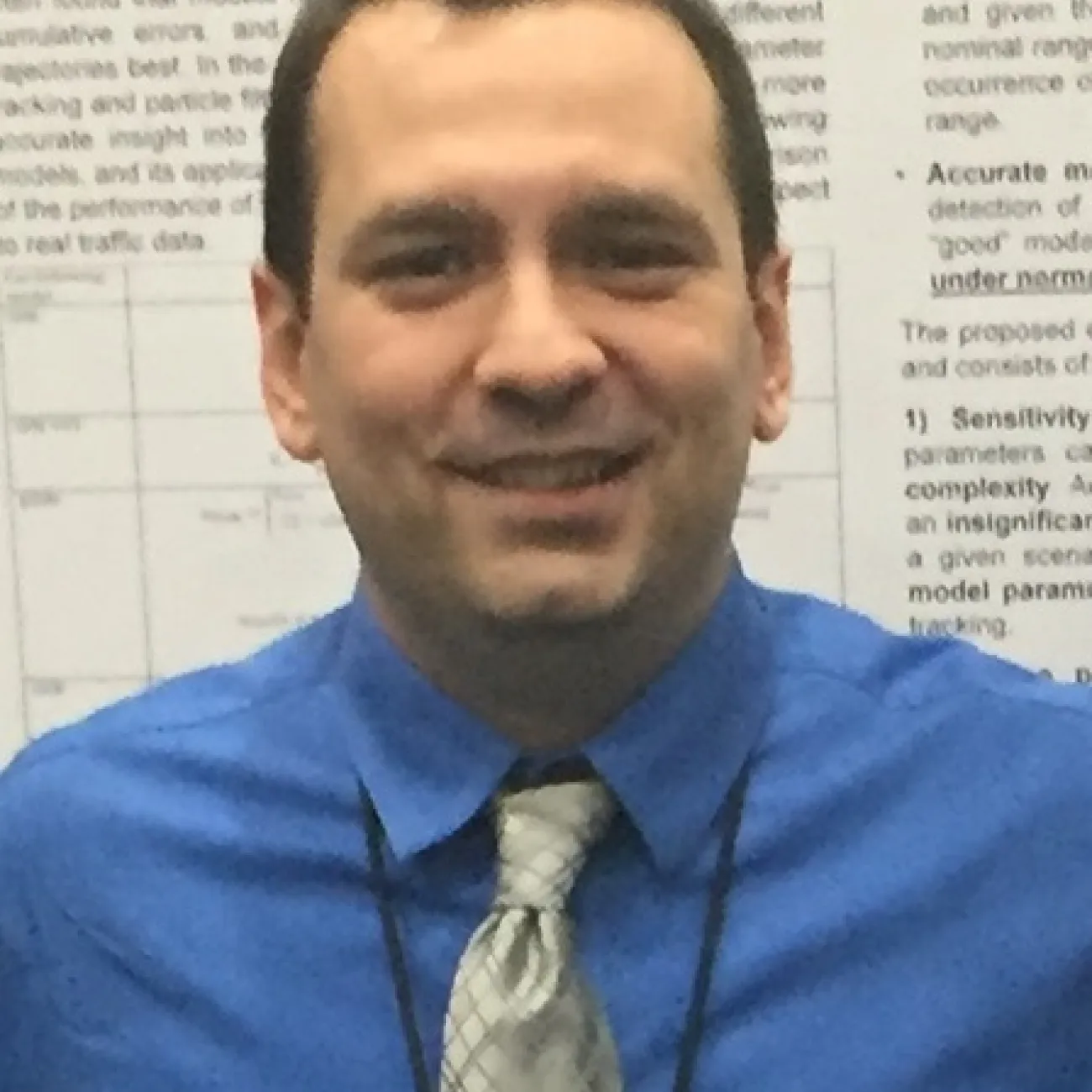About
Dr Ioannis Kaparias graduated with a Master of Engineering (MEng) degree in Civil Engineering from Imperial College London in 2004, having spent his final year of study at RWTH Aachen University in Germany. He then joined the Centre for Transport Studies of Imperial for his PhD research on the topic of Reliable Dynamic In-vehicle Navigation, in collaboration with BMW Group, which he completed in 2008, and continued as a post-doctoral Research Associate in the same institution for a period of four years, working on a wide range of transport research projects.
From 2012 he held a Lecturer position at City, University of London, and in 2016 he joined the Transportation Research Group (TRG) of the University of Southampton. He is a Fellow of Advance HE (formerly the Higher Education Academy) (FHEA), a member of the Chartered Institute of Highways and Transportation (CIHT), and a member of the Society of Greek Transport Engineers (SES). He currently serves as Deputy Editor-in-Chief of the IET Intelligent Transport Systems journal, as well as a member of two Standing Committees of the US Transportation Research Board (on Pedestrians (ACH10) and on Human Factors of Infrastructure Design and Operations (ACH40)). He also acts as an independent expert for the European Commission in research and innovation activities. Aside from English and his native Greek, he also speaks German, French and Italian.
Research
Research groups
Current research
Ioannis has a diverse research profile spanning across a wide range of areas in the field transport engineering. His primary focus and specialisation is in the area of efficient, safe, sustainable and inclusive land transport of passengers, and his track record includes the participation to research projects funded by the European Commission, UK local and national authorities, as well as industry. His research focuses on the following themes.
Highway and traffic management
With the ever-increasing need to travel, ensuring efficient use of road infrastructure and good service provision to drivers and passengers remains a key challenge. Ioannis’s research in this area includes the development, implementation and validation of novel methods and tools for managing traffic in both urban and inter-urban networks, with a particular interest in real-time routing and route guidance, travel time estimation, network reliability, highway capacity, microscopic traffic modelling and simulation, and performance evaluation.
Active travel modes
Walking and cycling are increasingly popular travel modes due to the benefits they offer in terms of space consumption, health and environmental sustainability. However, this popularity is often compromised by inadequate infrastructure, a poor safety record and a lack of understanding of the characteristics and needs of pedestrians and cyclists. Ioannis’s work focuses on addressing these issues, with highlights including the development and use of an instrumented bicycle, the investigation of the interaction of traffic with the public realm, and the analysis of road user behaviour and perceptions.
Public transport operations
A public transport system able to transport large numbers of passengers reliably, comfortably, safely and sustainably is the backbone of any successful city. Ioannis’s research in this area is aimed at the operational aspect of public transport networks and spans across different modes (bus, light rail, metro, on-demand transport). Recent studies include the development of route choice and transit assignment algorithms, the modelling of bus passenger waiting times and tram vehicle dwell times at stops/stations, the analysis of the customer impact of service disruptions on metro networks, and the re-configuration of bus networks in order to reduce emissions.
New transport technologies
The transport sector is undergoing radical change with technological advances introducing new mobility forms, such as Connected and Autonomous Vehicles (CAVs) and Mobility-as-a-Service (MaaS). The integration of these in the current transport system entails important research challenges, both in terms of how this integration should take place as well as what impacts it will have. Ioannis’s research attempts to provide an insight into these aspects, with recent activity tackling the aspects of CAV control algorithms, highway design standards for CAVs, using CAVs to improve traffic control, evaluating MaaS schemes, and estimating the impact of CAVs and MaaS on land use.
Research projects
Completed projects
Publications
Pagination
- 1
- 2
- 3
- 4
- 5
- …
-
Next page
Next
Teaching
Ioannis teaches on the following modules at the University of Southampton:
CENV3060 Highway & Traffic Engineering (lecturer)
CENV6171 Highway & Traffic Engineering (module coordinator and lecturer)
FEEG1201 Introduction to Engineering Design (lecturer for the Python Programming part)
In addition, as part of his role as Doctoral Programme Director (Training) in the School for Engineering, he is responsible for the coordination and delivery of the Training Programme for Engineering Postgraduate Researchers (PGRs).
In the past, he taught a broad range of subjects as part of his previous role at City, University of London, including Principles of Transport Systems, Transport Strategy and Policy, Engineering Mathematics, Statistics, Engineering Reliability and Research Skills. His portfolio further includes teaching Traffic Engineering at Imperial College London and Transportation Engineering at the University of East London, where he held visiting lecturer appointments.
